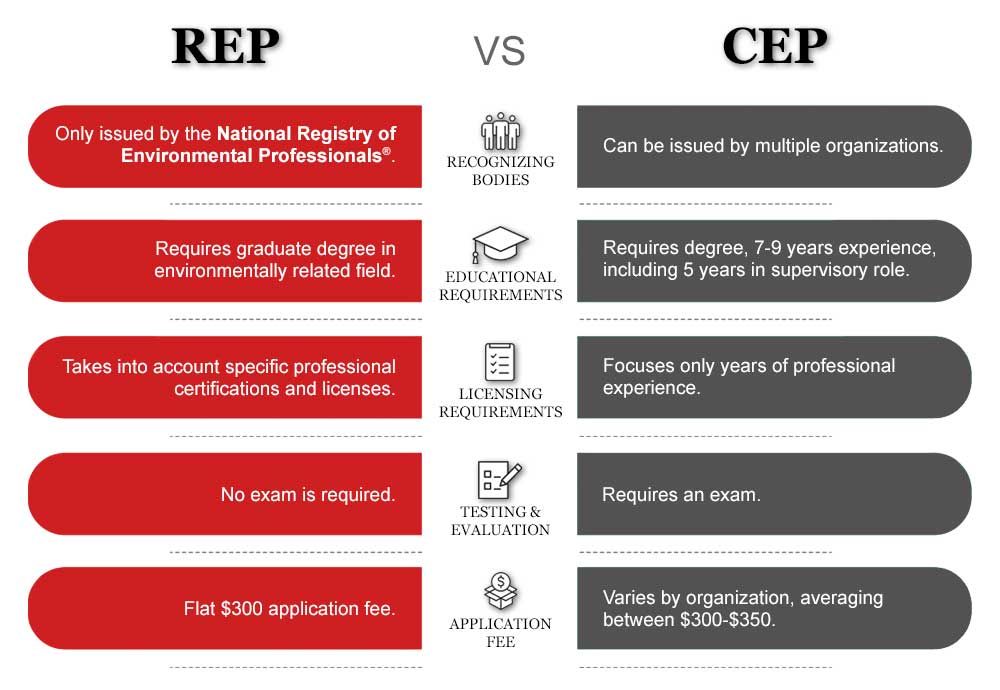Registered Environmental Professional® vs. Similar Programs

REP Certification Basics
REP certification differs from CEP certification in a number of important ways. These include the:
- Issuing body
- Educational requirements
- Licensing requirements
- Testing and evaluation
- Type of certification
- Certified Industrial Hygienist (CIH)
- Certified Environmental Trainer (CET)
- Certified Safety Professional (CSP)
- Certified Environmental Professional (CEP)
- Certified Hazardous Materials Manager (CHMM)
- State Certified Environmental Manager License
- State Licensed Environmental Assessor
- State Licensed Site Professional
- Certified Professional Geologist/Hydro-geologist License
- Oklahoma Registered Professional Specialist
- Certified Utility Safety Administrator
CEP Certification Basics
The CEP program is the oldest in the field. Originally instituted in 1979 as part of the National Association of Environmental Professionals (NAEP), it was spun off into the Academy of Board Certified Environmental Professionals (ABCEP), which became a subsidiary administrating organization. However, CEP certification isn’t limited solely to the ABCEP. Over time, this certification has spread to multiple certifying bodies.
What does CEP certification involve? Well, note that this isn’t a certification intended for those in the early stages of their environmental degree. Applicants must have a higher degree, which can include a bachelor’s degree, a master’s degree, or a doctorate. They must also have between seven and nine years of professional experience, five of which must be in some sort of supervision role.
After providing a resume, recommendation letters, and a number of essays, CEP applicants with adequate educational and professional experience will undergo an interview. Applicants will only receive certification if approved by five of the seven panel members. Application fees cost $200, and if accepted, applicants must pay an additional $125 certification fee.
CEP certification requires approximately three months to complete, and it demonstrates that holders are not only accomplished environmental professionals, but also that they adhere to an industry recognized code of conduct and ethics.
Why REP Is the Superior Choice for Most Environmental Professionals
Just like CEP certification, NREPSM’s REP certification demonstrates that its recipients are accomplished and ethical participants in the environmental fields. However, REP certification has higher educational standards, broader career metrics, a lower cost, and grants access to the NREPSM’s prestigious and widely recognized ranks. While both are excellent certifications in their own right, the REP will serve as the superior choice for most accomplished environmental professionals.
